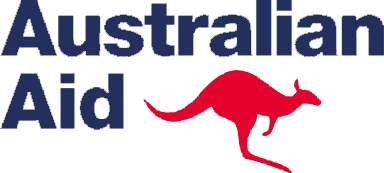- Details
- Category: Berita Media (News)
- Hits: 3859
Tribun News, 29 Juli 2014
 Meningkatnya angka infeksi HIV di Indonesia bukan lantas harus ditanggapi sebagai hal yang buruk. Bahkan, peningkatan tersebut justru bisa dilihat sebagai tanda kemajuan.
Meningkatnya angka infeksi HIV di Indonesia bukan lantas harus ditanggapi sebagai hal yang buruk. Bahkan, peningkatan tersebut justru bisa dilihat sebagai tanda kemajuan.
Pendapat ini diungkapkan oleh Steven J Kraus, Direktur Regional Support Team kawasan Asia Pasifik UNAIDS, yaitu badan Perserikatan Bangsa-Bangsa yang bekerja di bidang HIV/AIDS.
Dalam rilis pers UNAIDS tertanggal 16 Juli 2014, Indonesia disebut termasuk negara yang dianggap tertinggal dalam kemajuan melawan HIV.
Indonesia bersama lima negara lain dikatakan menghadapi tiga ancaman, yaitu beban HIV yang berat, cakupan pengobatan yang rendah, dan rendahnya tingkat penurunan infeksi HIV.
Dalam laporan 'Gap Report' UNAIDS yang diterbitkan tahun ini, disebutkan bahwa Infeksi HIV baru di Indonesia meningkat sebesar 48 persen.
- Details
- Category: Berita Media (News)
- Hits: 3820
the New Indian Express, 28 July 2014
HYDERABAD: The Andhra Pradesh State AIDS Control Society is launching Deepika Smart Card for HIV/AIDS patients, APSACS joint director (basic services) JC Reddy has said.
The Smart Card includes five aspects: addiction to smoking, drugs, etc; suspicion of tuberculosis; marital status, travel for long distances; any reproductive tract infections; sexually transmitted infections.
Designed as a self-evaluating system, people can fill the smart card, evaluate the grades and determine on their own if they are prone to HIV/AIDS. "As grades increase, vulnerability increases," Reddy says.
- Details
- Category: Berita Media (News)
- Hits: 3545
the Times of India, 29 July 2014
PANAJI: The parent teacher association (PTA) body's refusal to allow admission to HIV-positive children in a Rivona school has brought into sharp focus the lack of awareness about HIV/ AIDS among the general population in the state though Goa state aids control society (GSACS), a nodal department entrusted with enlightening people about HIV, is active for over a decade.
While GSACS is given credit for generating awareness about the deadly disease among high-risk groups such as commercial sex workers, truck drivers, motorcycle pilots, the Sanguem incident emphasizes the GSACS' need to also focus on the general population and work towards eliminating stigma attached to HIV AIDS.
- Details
- Category: Berita Media (News)
- Hits: 3277
VOA, 28 July 2014
 More than 130,000 people who live in 42 fishing villages along Uganda's shores of Lake Victoria have an HIV-infection rate that is three to four times higher than the national average in this country of 36 million people.
More than 130,000 people who live in 42 fishing villages along Uganda's shores of Lake Victoria have an HIV-infection rate that is three to four times higher than the national average in this country of 36 million people.
Uganda has been aggressive in combating the HIV virus for more than 30 years.
The IOM studied the fishing communities in six Uganda districts. When they examined the level of knowledge of HIV and the attitudes and practices of people in the communities, they found the high HIV prevalence was caused by many inter-related factors, said Dr. Natalia Gitu, IOM's chief medical officer in Kampala.
Gitu said the IOM study and several previous reports describes the mobility and lifestyle of the fishermen - "The fact that they have every day, new cash, that flows in their business, and it's associated with drinking alcohol, and engaging themselves in unprotected sex."
- Details
- Category: Berita Media (News)
- Hits: 3865
PIA, 28 July 2014
ILOILO CITY, July 28 (PIA) --- The Department of Health (DOH) in Western Visayas said that HIV/AIDS (human immunodeficiency virus/acquired immune deficiency syndrome) is no longer a "death sentence" for persons who have acquired the disease.
This is amid the increasing number of HIV cases in the region with 115 new recorded cases last year, according to DOH-6.
© 2025 Kebijakan AIDS Indonesia

